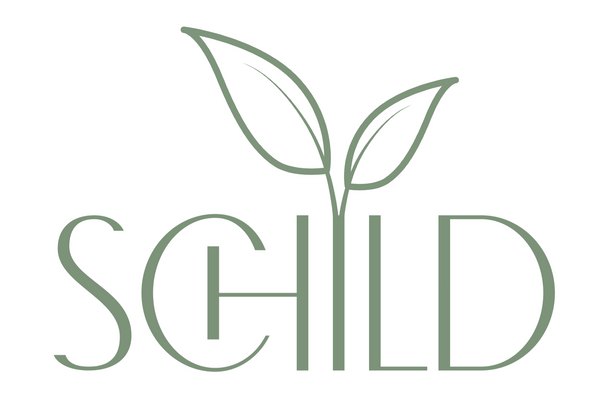
The Health of Our Children Starts In The Womb: Comprehensive Guide Towards a Safe and Healthy Pregnancy
Share
The wellbeing of our children begins with the environment we create from conception, strengthened by the choices we make through their childhood. Nutrition, physical activity, adequate rest, understanding the impact of electromagnetic fields (EMFs), and strategies to ensure a healthy pregnancy and childhood are our key focus areas.
1. Essentials of Nutrition During Pregnancy
Dietary decisions during pregnancy act as the building blocks for your unborn child’s health. Prioritising organic nutrient-dense food nurtures the developing foetus and protects it from potential harm.
A balanced diet rich in folate, iron, calcium, vitamin D, and omega-3 fatty acids is essential. Folate assists cell division and prevents neural tube defects. Iron is necessary for oxygen transportation and preventing anaemia while calcium and vitamin D strengthen bones. Omega-3 fatty acids promote neural and vision development of the baby.
Hydration during pregnancy aids in the formation of amniotic fluid, blood production, digestion, and flushing out toxins. Consuming organic vegetables, fruits, grains, and meats can provide higher nutritional content and freedom from harmful pesticides or synthetic fertilisers. These chemicals can act as endocrine disruptors and potentially hamper foetal development.
2. The Importance of Physical Activity During Pregnancy
Regular physical activity during pregnancy offers physical and psychological benefits. It reduces the chances of complications and aids swift recovery post childbirth.
Low-impact activities like walking, swimming, pre-natal yoga, and Pilates can enhance mood, sleep, and decrease discomfort. Strength training exercises help build stamina needed for labor.
It's important not to overdo exercise and stop when you feel tired. Regular hydration and staying within comfortable temperature zones are also necessary when exercising.
3. The Value of Rest
Adequate rest during pregnancy plays a vital role in the cognitive development of the foetus and helps maintain the mother's health.
Maintaining a regular sleep schedule and a quiet, dark, cool sleep environment is crucial. Minimising screen time before bed and incorporating relaxation techniques such as meditation help enhance sleep quality.
4. EMFs and Pregnancy: A Deeper Look
The potential effects of electromagnetic fields (EMFs) on public health extend to pregnancy. There are concerns that chronic exposure to EMFs could pose risks to foetal development.
There's some research suggesting that consistent exposure to EMFs may cause stress reactions affecting the protective barrier in the placenta, potentially disrupting foetal development. Other studies have shown possible associations between EMF exposure and miscarriage risk. However, it's important to note that this research is ongoing and not definitive.
Practical strategies for limiting EMF exposure can include reducing time spent using electronic devices like cell phones and other Wi-Fi-enabled devices. Using speaker mode instead of holding these devices close to your body and turning off Wi-Fi when it's not needed can also help reduce exposure. Wired internet connectivity can be an additional shield from EMFs.
Pregnant women can shield themselves from EMFs using products specially designed for this purpose. EMF protection blankets and bump coverings are made with special radiation-attenuating fabrics. Shop our range HERE
5. Nurturing Your Child's Health: Beyond the Womb
The impact of EMFs continues as your child grows. Though conclusive effects of EMFs on children’s health are still being studied, efforts to minimise exposure are recommended.
Reducing children’s screen time can be a way to limit their EMF exposure. Another way to mitigate the potential effects of EMFs is through protective clothing for children, made from EMF-shielding fabrics. Teaching children safe technology habits, such as using headphones or speaker mode when on the phone and keeping devices away from the body when not in use, is also advisable.
6. Postnatal Care: A Healthy Start for the Newborn
After the taxing experience of childbirth, the newborn and the mother both need dedicated care. Breastfeeding is beneficial as it provides antibodies that assist your newborn in fighting viruses and bacteria and facilitates bonding between mother and child.
Ensuring safety through practices such as correct use of car seats, providing a safe sleeping environment, and preventing exposure to secondhand smoke is necessary. Regular checkups with a paediatrician also play a crucial role in monitoring the child's growth pattern and development.
7. Postnatal Recovery for the Mother
As life changes profoundly after having a baby, physical and emotional adjustments become necessary. Care for the mother is equally important!
Additional nutrients are needed for the mother to aid recovery and support breastfeeding. A diet rich in protein, fibre, vitamins, coupled with hydration, fulfils these needs.
Adequate rest is crucial for recovery, and gentle physical activity like walking can help rebuild strength and wellbeing. Postpartum depression is common, and support from loved ones, professionals, as well as mindfulness practices, can assist in managing stress and fostering positivity.
Nurturing the health of our children begins before their journey into this world - during the critical stage of pregnancy, and continues well after their birth. It is by focusing on the various elements such as nutrition, physical activity, rest, understanding EMFs, and offering quality postnatal care, we can contribute to our children’s wellbeing and development and ensure healthy pregnancies.
